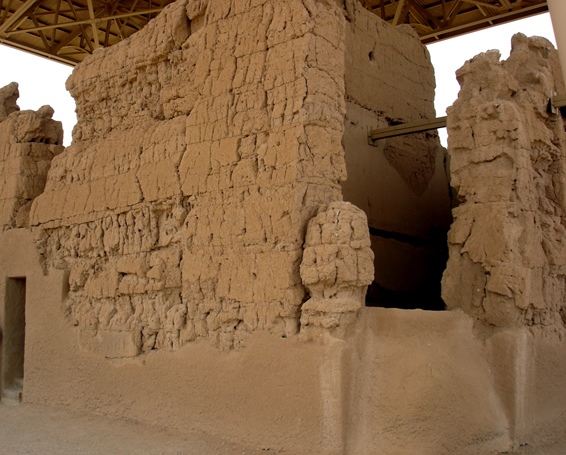|
Ann Hibner Koblitz
Ann Hibner Koblitz (born 1952) is a Professor Emerita of Women and Gender Studies at Arizona State University known for her studies of the history of women in science. She is the Director of the Kovalevskaia Fund, which supports women in science in developing countries. Education and career She received her B.A. in history of science from Princeton University, where she was in the first class of women admitted as undergraduates. She earned her Ph.D. in history from Boston University. She studied and did research in the Soviet Union in 1974–75, 1978, 1981–82, 1985, and 1986. In 1984–85 she was a member of the Institute for Advanced Study in Princeton, after which she had temporary teaching positions at Wellesley College, Oregon State University, and the University of Puget Sound. From 1989 to 1998 she taught at Hartwick College in Oneonta, New York. Since 1998 she has been a professor at Arizona State University. Controversies In a graduate seminar in 1977 Ann Hibner K ... [...More Info...] [...Related Items...] OR: [Wikipedia] [Google] [Baidu] |
Jersey City, New Jersey
Jersey City is the second-most populous city in the U.S. state of New Jersey, after Newark.The Counties and Most Populous Cities and Townships in 2010 in New Jersey: 2000 and 2010 , . Accessed November 7, 2011. It is the of and the county's largest city. [...More Info...] [...Related Items...] OR: [Wikipedia] [Google] [Baidu] |
Serge Lang
Serge Lang (; May 19, 1927 – September 12, 2005) was a French-American mathematician and activist who taught at Yale University for most of his career. He is known for his work in number theory and for his mathematics textbooks, including the influential ''Algebra''. He received the Frank Nelson Cole Prize in 1960 and was a member of the Bourbaki group. As an activist, Lang campaigned against the Vietnam War, and also successfully fought against the nomination of the political scientist Samuel P. Huntington to the National Academies of Science. Later in his life, Lang was an HIV/AIDS denialist. He claimed that HIV had not been proven to cause AIDS and protested Yale's research into HIV/AIDS. Biography and mathematical work Lang was born in Saint-Germain-en-Laye, close to Paris, in 1927. He had a twin brother who became a basketball coach and a sister who became an actress. Lang moved with his family to California as a teenager, where he graduated in 1943 from Beverly Hills H ... [...More Info...] [...Related Items...] OR: [Wikipedia] [Google] [Baidu] |
1952 Births
Year 195 ( CXCV) was a common year starting on Wednesday (link will display the full calendar) of the Julian calendar. At the time, it was known as the Year of the Consulship of Scrapula and Clemens (or, less frequently, year 948 ''Ab urbe condita''). The denomination 195 for this year has been used since the early medieval period, when the Anno Domini calendar era became the prevalent method in Europe for naming years. Events By place Roman Empire * Emperor Septimius Severus has the Roman Senate deify the previous emperor Commodus, in an attempt to gain favor with the family of Marcus Aurelius. * King Vologases V and other eastern princes support the claims of Pescennius Niger. The Roman province of Mesopotamia rises in revolt with Parthian support. Severus marches to Mesopotamia to battle the Parthians. * The Roman province of Syria is divided and the role of Antioch is diminished. The Romans annexed the Syrian cities of Edessa and Nisibis. Severus re-establish his h ... [...More Info...] [...Related Items...] OR: [Wikipedia] [Google] [Baidu] |
Kenneth O
Kenneth is an English given name and surname. The name is an Anglicised form of two entirely different Gaelic personal names: ''Cainnech'' and '' Cináed''. The modern Gaelic form of ''Cainnech'' is ''Coinneach''; the name was derived from a byname meaning "handsome", "comely". A short form of ''Kenneth'' is '' Ken''. Etymology The second part of the name ''Cinaed'' is derived either from the Celtic ''*aidhu'', meaning "fire", or else Brittonic ''jʉ:ð'' meaning "lord". People :''(see also Ken (name) and Kenny)'' Places In the United States: * Kenneth, Indiana * Kenneth, Minnesota * Kenneth City, Florida In Scotland: * Inch Kenneth, an island off the west coast of the Isle of Mull Other * "What's the Frequency, Kenneth?", a song by R.E.M. * Hurricane Kenneth * Cyclone Kenneth Intense Tropical Cyclone Kenneth was the strongest tropical cyclone to make landfall in Mozambique since modern records began. The cyclone also caused significant damage in the Comoro Islands and ... [...More Info...] [...Related Items...] OR: [Wikipedia] [Google] [Baidu] |
Opposition To United States Involvement In The Vietnam War
Opposition to United States involvement in the Vietnam War (before) or anti-Vietnam War movement (present) began with demonstrations in 1965 against the escalating role of the United States in the Vietnam War and grew into a broad social movement over the ensuing several years. This movement informed and helped shape the vigorous and polarizing debate, primarily in the United States, during the second half of the 1960s and early 1970s on how to end the war. Many in the peace movement within the United States were children, mothers, or counterculture of the 1960s, anti-establishment youth. Opposition grew with participation by the African-American civil rights, second-wave feminist movements, Chicano Movements, and sectors of organized labor. Additional involvement came from many other groups, including educators, clergy, academics, journalists, lawyers, physicians such as Benjamin Spock, and military veterans. Their actions consisted mainly of peaceful, nonviolent events; few ... [...More Info...] [...Related Items...] OR: [Wikipedia] [Google] [Baidu] |
Hohokam
Hohokam () was a culture in the North American Southwest in what is now part of Arizona, United States, and Sonora, Mexico. It existed between 300 and 1500 AD, with cultural precursors possibly as early as 300 BC. Archaeologists disagree about whether communities that practiced the culture were related or politically united. According to local oral tradition, Hohokam societies may be the ancestors of the historic Pima and Tohono O'odham peoples in Southern Arizona. The origin of the culture is debated. Most archaeologists either argue it emerged locally or in Mesoamerica, but it was also influenced by the Northern Pueblo culture. Hohokam settlements were located on trade routes that extended past the Hohokam area, as far east as the Great Plains and west to the Pacific coast. Hohokam societies received a remarkable amount of immigration. Some communities established significant markets, such as that in Snaketown. The harshness of the Sonoran Desert may have been the most influ ... [...More Info...] [...Related Items...] OR: [Wikipedia] [Google] [Baidu] |
Steven A
Stephen or Steven is a common English first name. It is particularly significant to Christians, as it belonged to Saint Stephen ( grc-gre, Στέφανος ), an early disciple and deacon who, according to the Book of Acts, was stoned to death; he is widely regarded as the first martyr (or "protomartyr") of the Christian Church. In English, Stephen is most commonly pronounced as ' (). The name, in both the forms Stephen and Steven, is often shortened to Steve or Stevie. The spelling as Stephen can also be pronounced which is from the Greek original version, Stephanos. In English, the female version of the name is Stephanie. Many surnames are derived from the first name, including Stephens, Stevens, Stephenson, and Stevenson, all of which mean "Stephen's (son)". In modern times the name has sometimes been given with intentionally non-standard spelling, such as Stevan or Stevon. A common variant of the name used in English is Stephan ; related names that have found some curr ... [...More Info...] [...Related Items...] OR: [Wikipedia] [Google] [Baidu] |
Lenore Blum
Lenore Carol Blum (née Epstein, born December 18, 1942) is an American computer scientist and mathematician who has made pioneering contributions to the theories of real number computation, cryptography, and pseudorandom number generation. She was a distinguished career professor of computer science at Carnegie Mellon University until 2019 and is currently a professor in residence at the University of California, Berkeley. She is also known for her efforts to increase diversity in mathematics and computer science. Early life and education Blum was born to a Jewish family in New York City, where her mother was a science teacher. They moved to Venezuela when Blum was nine. After graduating from her Venezuelan high school at age 16, she studied architecture at Carnegie Institute of Technology (now Carnegie Mellon University) beginning in 1959. With the assistance of Alan Perlis, she shifted fields to mathematics in 1960. She married Manuel Blum, then a student at the Massachusett ... [...More Info...] [...Related Items...] OR: [Wikipedia] [Google] [Baidu] |
Women In Mathematics
''Women in Mathematics'' is a book on women in mathematics. It was written by Lynn M. Osen, and published by the MIT Press in 1974. Topics The main content of the book is a collection of eight biographies of women mathematicians, arranged chronologically, with an additional introductory chapter and two closing chapters. The mathematicians profiled here are Hypatia, Maria Gaetana Agnesi, Émilie du Châtelet, Caroline Herschel, Sophie Germain, Mary Somerville, Sofya Kovalevskaya, and Emmy Noether. One of the two closing chapters features shorter profiles of additional women mathematicians, "rather curiously selected" and "mostly working in America". Reception Although reviewer Philip Peak found the book "interesting and useful", and reviewer writes that it is written in a pleasant style, most reviewers were not as positive. Hardy Grant writes that Osen's profile of Hypatia has treated her "very badly" by being based primarily on a piece of fiction for children written in the early ... [...More Info...] [...Related Items...] OR: [Wikipedia] [Google] [Baidu] |
Association For Women In Mathematics
The Association for Women in Mathematics (AWM) is a professional society whose mission is to encourage women and girls to study and to have active careers in the mathematical sciences, and to promote equal opportunity for and the equal treatment of women and girls in the mathematical sciences. The AWM was founded in 1971 and incorporated in the state of Massachusetts. AWM has approximately 5200 members, including over 250 institutional members, such as colleges, universities, institutes, and mathematical societies. It offers numerous programs and workshops to mentor women and girls in the mathematical sciences. Much of AWM's work is supported through federal grants. History The Association was founded in 1971 as the Association of Women Mathematicians, but the name was changed almost immediately. As reported in "A Brief History of the Association for Women in Mathematics: The Presidents' Perspectives", by Lenore Blum: Mary Gray, an early organizer and first president, placed ... [...More Info...] [...Related Items...] OR: [Wikipedia] [Google] [Baidu] |
Evelyn Fox Keller
Evelyn Fox Keller (born March 20, 1936) is an American physicist, author and feminist. She is Professor Emerita of History and Philosophy of Science at the Massachusetts Institute of Technology. Keller's early work concentrated at the intersection of physics and biology. Her subsequent research has focused on the history and philosophy of modern biology and on gender and science. Biography Born in Jackson Heights, Queens to immigrants from Russia, Keller grew up in Woodside, Queens.Dean, Cornelia"Theorist Drawn Into Debate 'That Will Not Go Away'" ''The New York Times'', April 12, 2005. Accessed November 27, 2017. "Dr. Keller, whose honors and fellowships include a MacArthur award in 1992 (she used the money to buy a house on Cape Cod), was born in Jackson Heights, Queens, in 1936, the daughter of Russian immigrants. She grew up in Woodside, graduated with a degree in physics from Brandeis and went on to Harvard." She received her B.A. in physics from Brandeis University in 1957 ... [...More Info...] [...Related Items...] OR: [Wikipedia] [Google] [Baidu] |
Essentialism
Essentialism is the view that objects have a set of attributes that are necessary to their identity. In early Western thought, Plato's idealism held that all things have such an "essence"—an "idea" or "form". In ''Categories'', Aristotle similarly proposed that all objects have a substance that, as George Lakoff put it, "make the thing what it is, and without which it would be not ''that'' kind of thing". The contrary view—non-essentialism—denies the need to posit such an "essence'". Essentialism has been controversial from its beginning. Plato, in the '' Parmenides'' dialogue, depicts Socrates questioning the notion, suggesting that if we accept the idea that every beautiful thing or just action partakes of an essence to be beautiful or just, we must also accept the "existence of separate essences for hair, mud, and dirt". In biology and other natural sciences, essentialism provided the rationale for taxonomy at least until the time of Charles Darwin; the role and impo ... [...More Info...] [...Related Items...] OR: [Wikipedia] [Google] [Baidu] |


